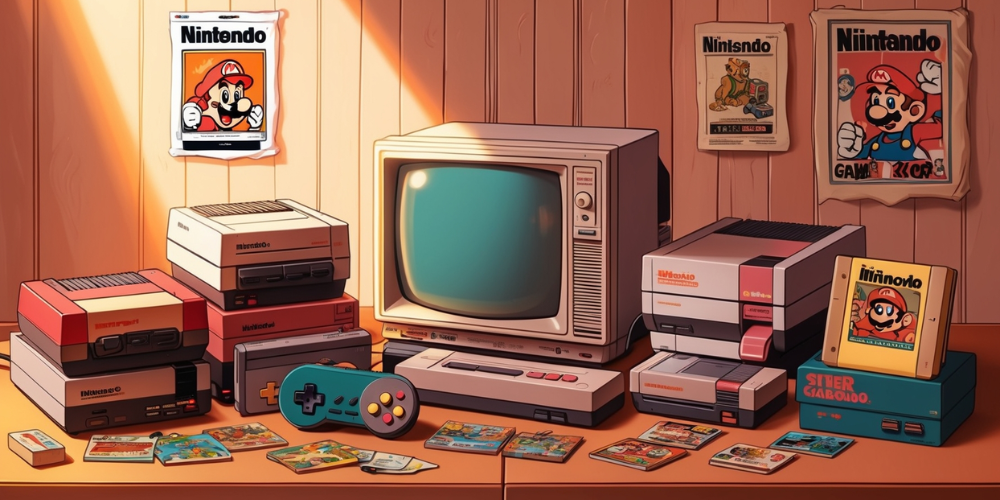
Nintendo has long held a cherished place in the hearts of gamers, celebrated for its iconic franchises and a rich catalog of beloved titles. However, as the gaming landscape evolves, the company faces a pressing question: how does it maintain its legacy while adapting to new trends? In a world where digital purchases are increasingly prevalent, the lack of backwards compatibility poses a challenge that could hinder Nintendo’s ability to keep its loyal fanbase engaged. As we delve into this matter, the recent release of Luigi's Mansion 2 HD sheds light on the significance of adopting a more consumer-friendly approach to its gaming library.
A Legacy of Reissues and Remasters
Nintendo has earned a notorious reputation for revisiting its classic games—sometimes to the tune of double or triple dipping. From the nostalgic remasters like Super Mario All-Stars on the Super NES to more recent endeavors such as the classic NES collections on the Game Boy Advance, the company has repeatedly capitalized on its storied history. Yet, as the gaming industry shifts towards a primarily digital future, Nintendo has been notably slow to embrace a unified digital library similar to what competitors like PlayStation and Xbox have successfully implemented.
The Case of Luigi's Mansion 2 HD
When Luigi's Mansion 2 HD was released, it marked a significant revival of a title originally launched on the 3DS. The remaster is an enjoyable experience, providing a fresh look at a game that might otherwise fade into obscurity. However, this brings forth an important consideration: while it is delightful to revisit this chapter in the series, what does it mean for players who have long formed a digital collection of Nintendo games? The game deserves better than to simply transition from one console to another without continuity.
A Changing Landscape
The gaming community has grown accustomed to the notion of backwards compatibility, especially as platforms begin to merge their libraries into a single, accessible format. With Nintendo's track record of remastering titles like Luigi's Mansion 2, it's evident that they are still navigating their way through the complex maze of modern gaming expectations. New announcements, such as a remaster of Donkey Kong Country Returns, further emphasize a growing library but also highlight a concerning lack of progression in terms of digital ownership.
Learning from Competitors
In the context of gaming, companies like Xbox have set a high bar for backwards compatibility, allowing players to enjoy hundreds of titles from earlier generations on newer consoles. Phil Spencer, the head of Xbox, provides a keen insight into the importance of maintaining a cohesive digital library, especially following the struggles of the Xbox One generation. For many consumers, losing easy access to their previously purchased games is not an option they are willing to entertain. They prefer environments where their digital collections retain their value and remain accessible, something Nintendo must recognize as it prepares for its next console.
Navigating the Future
As Nintendo approaches a new era with the anticipated successor to the Switch, the company must focus on addressing its own account systems, which have historically been fragmented across various platforms. Doug Bowser, the president of Nintendo of America, hinted at promising changes with the formation of a single, unified Nintendo Account. This shift could allow players to carry their existing purchases forward, but it also raises expectations for true backwards compatibility—a crucial element that could make or break the company's reputation in the new generation.
The Stakes Are Higher Than Ever
The stakes in this transition are particularly high. Nintendo's reluctance to adapt fully to the shifting trends in gaming could result in a profound backlash from devoted fans. As players grow accustomed to storing their digital libraries under a single banner, the failure to honor existing purchases risks damaging the loyalty that Nintendo has built over decades. No longer can gamers be expected to repurchase titles like Luigi's Mansion 2 multiple times. They require assurance that their investments will be respected, and that their digital collections will endure.
A Call for Change
Ultimately, as Nintendo looks ahead, the company has an opportunity to redefine its approach to digital ownership and backwards compatibility. Embracing a new paradigm can strengthen their relationship with players and fortify the enduring value of their incredible library of games. As they navigate the next generation, ensuring that players don’t need to reinvent their collections but can seamlessly transition into new hardware with their favorites intact is essential. Gamers expect integrity and respect for their purchases—it's time for Nintendo to answer that call.
Conclusion: Building a Lasting Digital Future
The relationship that players share with Nintendo's games is steeped in nostalgia and loyalty, akin to family ties woven through years of memorable experiences. While remasters like Luigi's Mansion 2 HD are enjoyable additions to the ever-growing collection, they represent just one facet of what players desire. A unified digital library, along with a commitment to backwards compatibility, will be paramount in enhancing the overall gaming experience as we move forward. It’s a challenging path, yet one that Nintendo must navigate with care to ensure that it does not alienate its most passionate supporters. In doing so, the company can not only reaffirm its legacy but also foster a new era of gaming that resonates with a whole new generation.
Leave a comment
Your comment is awaiting moderation. We save your draft here
0 Comments